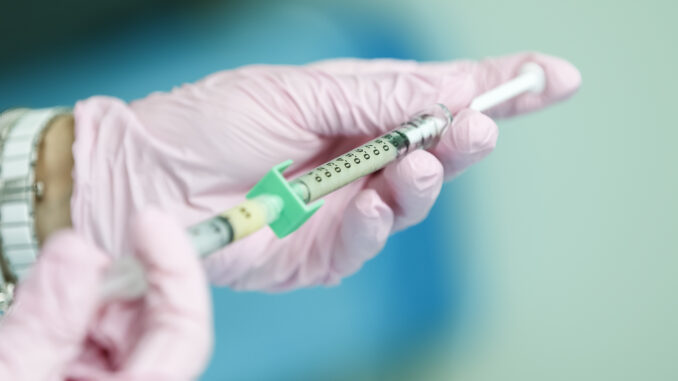
North Yorkshire NHS bosses say the Covid-19 vaccine roll-out is now expanding to include everyone aged over 60 and people with underlying health conditions.
Officials say the push to protect people from the virus is moving into the next phase following the successful first stage targeting the top four priority groups – those aged 70 and over, care home workers, residents, front-line health and care workers and the clinically extremely vulnerable.
The latest figures show that 247,629 vaccine doses have been given to people across North Yorkshire and the Vale of York.
However, despite the success of the programme, NHS bosses say it remains vital that everyone who has been vaccinated continues to follow the latest lockdown guidelines to reduce the spread of the virus.
Officials say that, while moving down the age groups, local GP-led vaccination services are focusing initially on the clinically vulnerable in their area, including those with long-term conditions.
This means some younger people with underlying health conditions may be offered a local appointment before some in the 60 to 69 age group.
However, officials say this does not mean anyone has been missed and everyone will hear directly from the NHS when it’s their turn.
While everyone will be contacted by their local GP-led vaccination service in due course, the national booking service is currently open to anyone aged over 60, who has previously received a letter saying they are at high risk from coronavirus, is an eligible front-line health or social care worker or is eligible for Carer’s Allowance.
Appointments booked in this way are usually offered at a larger regional vaccination centre or a pharmacy.
Dr Nigel Wells, NHS Vale of York Clinical Commissioning Group (CCG) clinical xhair, said: “The NHS in in our area is working incredibly hard to deliver the COVID-19 vaccination.
“I would like to thank everyone working to support the programme – from volunteers to vaccinators and many others – as well as the wider public for their continued support and understanding.
“This immense local effort across the York and North Yorkshire health and care system has led to the rapid rollout of the programme across our communities.
“The vaccines, which have been extensively tested, are given as an injection into your upper arm in two doses, with the second following three to 12 weeks after the first.
“While the first dose should give you good protection against the effects of COVID-19 in a few weeks, it’s important to remember you could still catch or spread the virus – including the new emerging more infectious variants.”
NHS North Yorkshire Clinical Commissioning Group (CCG) Accountable Officer, Amanda Bloor, said: “We continue to encourage everyone who is invited for a vaccination to take up the offer to protect not only themselves but their families and loved ones.
“It’s also important that people attend for their second dose when the time comes to get the maximum protection offered by the vaccines currently being administered.
“We’re seeing high take-up of the vaccine in North Yorkshire and York, but if you were one of those in the first four priority groups who did not initially come forward it’s not too late if you’ve changed your mind – you can get in touch with the National Booking Service online or by calling 119 to get an appointment at one of the larger vaccination centres.
“In North Yorkshire and York we are on target to offer vaccinations to everyone in the nine priority groups by the middle of April. This wouldn’t be possible without the dedication and commitment of a lot of people, from our GPs, nurses and primary care teams to the vaccinators, car park marshals and numerous other volunteers. I would like to thank everyone who’s playing their part.”
People have been urged not to contact the NHS about the vaccine until they’ve been notified that it’s their turn.
The vaccine is free – the NHS will never ask for bank details, account numbers, pins or passwords, or for copies of personal documents such as a driving licence, passport or payslip.
Officials say that if you do not want an appointment at a larger vaccination centre or pharmacy, do not contact your GP surgery to enquire about the vaccine.


Be the first to comment